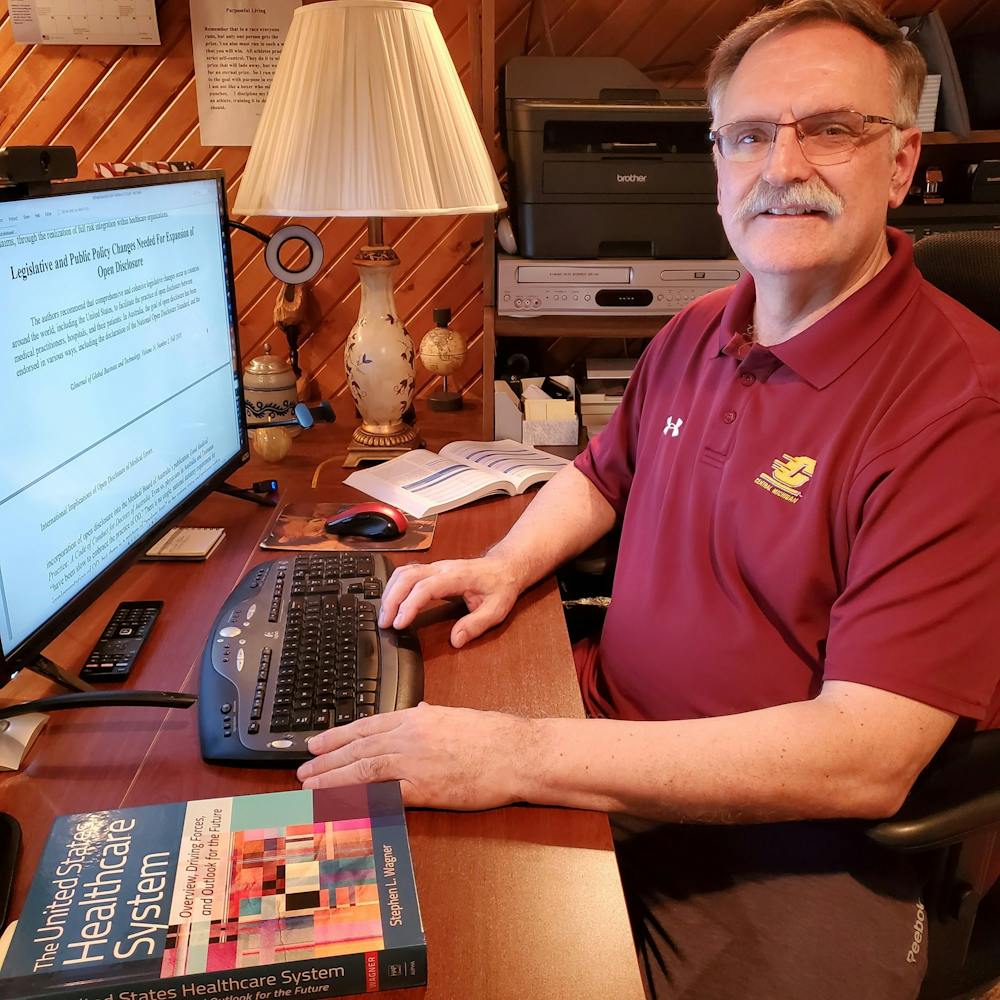CMU professors suggest policy change for aging surgeons
The operating room is the ultimate domain of a surgeon, where clinical power is held without question. The responsibilities of a seasoned practitioner far outweigh those of most careers, as the lives of those they treat are in their hands.
But below every physician’s experience, degrees and confidence is someone bound to the rigors of being human. Individuals with the power of life and death are susceptible to plights of emotions, mistakes and aging.
Mark Cwiek, is a professor of health administration and lead author of the report "When Surgeons Are 'Too Old' to Practice Surgery: Recommendations to Balance the Imperatives of Public Safety and Practical Necessity," which was published in Hospital Topics. Cwiek has taken a particular interest in the topic of aging surgeons and has released a suggestion urging health systems to rethink the unlimited privilege of aged physicians.
In the report, the authors suggest that health systems should begin to test surgeons at the age of 65 for competency instead of allowing aged surgeons to practice unchecked.
Decisions for the age and details of the policy change come from those highlighted by some health governing bodies. The Society of Surgical Chairs has supported and recommended a similar approach to aging surgeons.
“This is a balance; it’s a balance between what’s right for the public safety and what’s right for the individual surgeons,” Cwiek said.
This report comes at a time when surgeons in the United States are getting older and retiring later.
“Nearly one-third of the practicing surgeons in the United States are now over the age of 55, so we have a boomer issue when it comes to practitioners,” Cwiek said.
There have been a few countries that have implemented similar policies with a mixture of success. Even the United States has had a limited number of institutions implement something similar, but these only make up 5 to10 percent of health systems, according to the report.
Although rare in medicine, other careers have implemented mandatory retirement ages in the interest of public safety. Professions such as pilots, FBI agents and firefighters have a mandatory retirement age.
These mandatory retirement ages are typically done in the interest of public safety once age-related mental and physical decline come into play.
The true number of medical mistakes that have been made due to age-related issues is not known. However, studies cited in the report do show that the cognitive ability of people can decrease by 20 percent between the ages of 40 and 75.
“You don’t want to keep somebody around who is not practicing their specialty in the safest manner possible,” Dr. Dan Vick, CMU professor and contributing author for the report, said. “I also realize that you want to practice for as long as possible,” he said.
Surgeons spend years training and are routinely some of the highest-paid employees at hospital systems, so implanting a policy where physician’s privileges could possibly be removed could be viewed negatively.
“Their sense of why they’re here on this planet has been wrapped up in doing good for people,” Cwiek said.
Although health systems across the county face this problem, Cwiek hopes surgeons and their governing bodies will address it.
“What I’m hoping is that the medical professionals themselves realize that this is an issue that needs discussion and resolution because if we don’t, then there’s the possibility of a congressional mandate,” he said.
The report offers an alternative to the mandatory retirement model. If implemented, surgeons may still practice into their later years if they maintain the necessary cognitive and physical skills to complete their job safely. Additionally, surgeons may also pivot to roles as administrative staff and mentors outside of the operating room.
However, until then, it is the responsibility of the surgeons and their administration to monitor skills and keep the public safe.
"You ought to leave when you're on top of your game," Cwiek said.







